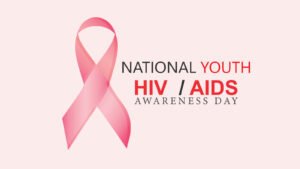International Fact-Checking Day 2024: International Fact-Checking Day on April 2 combats ‘fake news’ and protects the public. Fact-checkers verify facts and prevent journalistic deceit and misinformation, protecting a publication’s reputation. This can reduce defamation and litigation claims caused by reporting inaccuracies; hence, the fact-checker is important.
Today, news spreads via Twitter, Reddit, and Instagram, leaving media and information open to manipulation to mislead or influence public opinion. Therefore, fact-checkers are, in a sense, the superheroes of the present day, as they serve the public interest.
International Fact-Checking Day: History
April 2, 2017, marked the inaugural observance of International Fact-Checking Day. However, journalists and professional fact-checkers first proposed this day at a 2014 LSE conference. An acknowledgment of political misinformation’s danger started the discourse, especially on social media, where vast audiences spend daily time. In 2016, the observance was formalized and continued the following year due to disruption caused by fake news during the 2016 U.S. elections.
The International Fact-Checking Network (I.F.C.N.), in collaboration with numerous media organizations across the globe, formally endorses this initiative. Notable is the fact that April 2 occurs the day following April Fools’ Day, which cleverly alludes to the dichotomy between “fool” and “fact.” On this day, numerous types of media organizations collaborate to contribute to the expanding collection of resources that enable individuals to verify information and educate the public and students on how to recognize and prevent the spread of misinformation and false news.
Facts have only been fact-checked for less than a century, making it a relatively new concept. Originating in the ‘yellow journalism’ era of the United States, during which sensationalism trumped the pursuit of truth to generate profit, this phenomenon finds its origins. Fact-checking, once mainly done by women and seen as a traditionally feminine job, gained professional recognition when “TIME” magazine was introduced in the 1920s. Due to the proliferation of false information on social media platforms, its significance has now multiplied.
National DIY Day 2024 (US): Discover about its Fascinating History and Facts
International Fact-Checking Day: FAQs
Can you name one intriguing fact?
Glaciers and ice sheets hold about 69% of Earth’s freshwater.
What is an arbitrary fact?
Competitive art was formerly a category at the Olympic Games.
Which is the most peculiar fact?
Due to the efforts of “Eternal Reefs,” a company that converts cremated remains into sustainable ocean corals, burial at sea has taken on an entirely new significance.
Five Facts Regarding Google and Context-Checking Google Images
- To search for an image, right-click on any image.
- Consultation with reputable and trustworthy publications is an effective method for verifying the information.
- A new Google application known as Fact Check Explorer facilitates the process.
- There are tools at one’s disposal, such as Google Earth, that can provide tangible evidence for comparison with suspected images.
- Trustworthy sources frequently populate this category on search engines like Google.
Single Tasking Day 2024 (US): Know about its Activities and Importance












